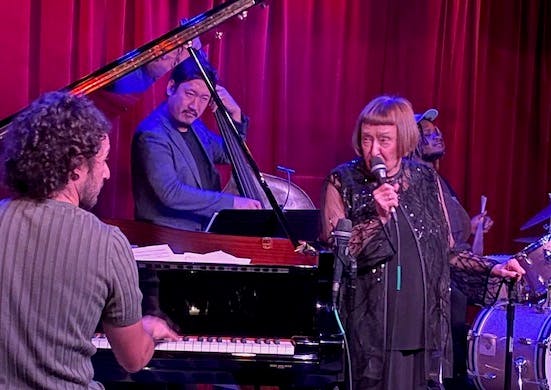
‘Wildcat Banking’: Bitcoin Prices Plunge as Crypto Selloff Picks Up Pace
By LUKE FUNK
|Cohen translates a slice of Ellington into purely pianist terms in a way that creates a distinct sensation that the piano keys and pedals are somehow airborne and flying all over the room.

Already have a subscription? Sign in to continue reading

By LUKE FUNK
|
By LAWRENCE KUDLOW
|
By MATTHEW RICE
|$0.01/day for 60 days
Cancel anytime
By continuing you agree to our Privacy Policy and Terms of Service.